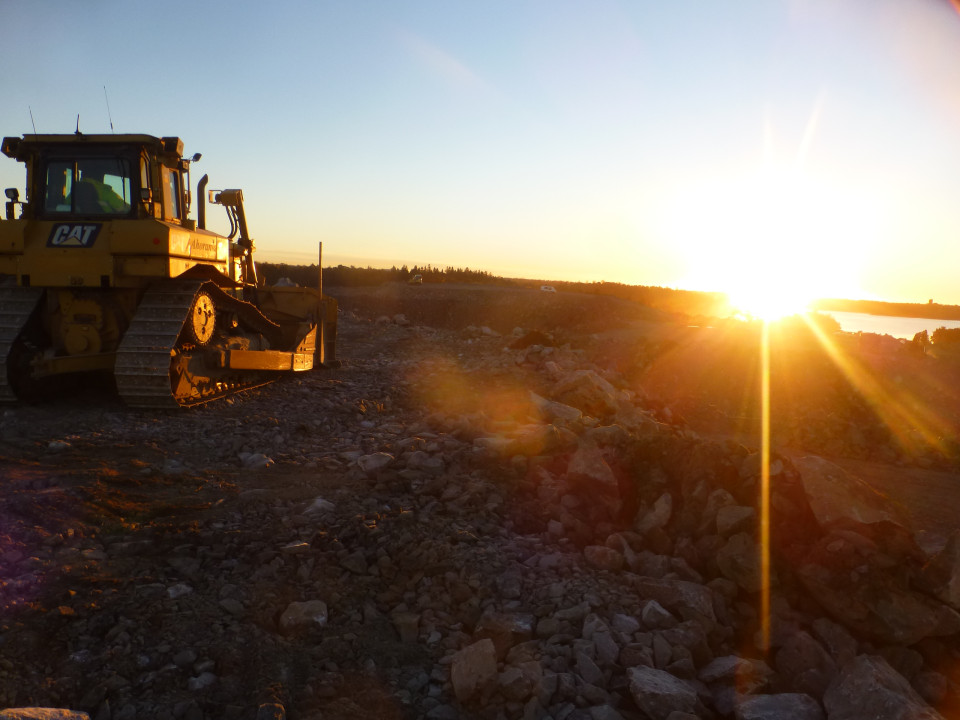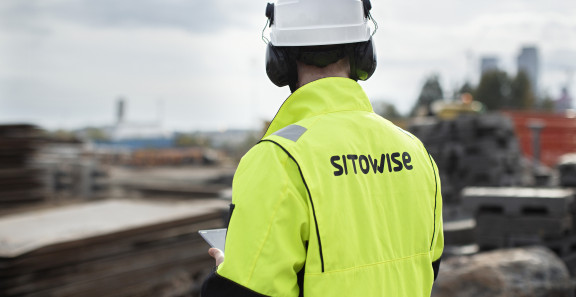Sitowise carried out a project with the municipalities of Porvoo, Loviisa and Sipoo to develop their management of land and soil masses in construction and draw up more efficient operating models for it. Each of the three municipalities had different starting points for developing their circular economy in construction. The work began with extensive interview with specialists to form an overall picture of the current state of the municipalities’ mass management and to form suitable future goals. Local stakeholders and municipal companies also participated in the work.
- The interviews provided us with a wide range of valuable information from different municipal departments and stakeholders on their mass management situation. By co-creating the action cards in joint workshops, we ensured that the measures were suitable for each municipality's objectives, resources and operating environment, says Joonas Lindfors, Junior Specialist in Project Management at Sitowise.
The project was very much needed in different departments and it clarified the operational needs of mass management.
Marjo Bruun, Sipoo
In recent years, the municipality of Sipoo has carried out many measures to improve the efficiency of mass management, such as mass exchanges between construction sites and the reutilisation of crushed concrete and topsoil materials.
- Sipoo is a rapidly growing municipality and there will be a lot of construction in the new development areas in the future. We noticed the need for more accurate mass management. It should be considered already when drawing up the plans and then throughout the projects’ whole lifecycle. The project was very much needed in different departments, and it clarified the operational needs of mass management. As a result, we received action cards that are good to follow in order to promote better mass management within the municipality, says Marjo Bruun, Head of Municipal Technology at Sipoo.
Participating in the project was an excellent opportunity to hear the thoughts of specialists on how mass management could be developed.
Suvi Peltola, Loviisa
Loviisa has also taken the first steps towards more efficient mass management, for example by utilising gritting sands in the construction of recreational trails. The operating model now drawn up supports taking the work to the next level.
- The City of Loviisa wanted to develop its own mass management for taking climate perspectives into account and also to investigate whether there are prerequisites for co-operation in mass management across municipal borders. Participating in the project was an excellent opportunity to hear the thoughts of experts on how mass management could be developed. The project identified concrete measures that can be promoted, says Suvi Peltola, Planning Engineer at the City of Loviisa.
Sitowise brilliantly planned and managed a project involving a wide range of the city’s experts and departments.
Enni Flykt, Porvoo
A wide range of measures have already been implemented in Porvoo to enhance mass management in construction. Among other things, the city has sought to acquire areas where the reutilisation of surplus soil is possible and has prepared a mass balance calculations for for one large-scale infrastructure construction project.
- We ordered the work from Sitowise after an interview. The preparation of the operating model and action cards had already been set as a measure in Porvoo's Climate and Environment Programme and in the Circwaste project of Syke. Sitowise brilliantly planned and managed a project involving a wide range of the city’s experts and departments. Since the measures were selected in collaboration, their implementation has already taken its first step, says Enni Flykt, Head of Urban Planning at the City of Porvoo.
The group's discussions highlighted how the starting points of municipalities for mass management are different, but challenges need to be solved together across the borders.
Leena Alihakkola, Posintra
With clear overall picture towards a more efficient circular economy

Although the starting points and needs for reutilisation of land and soil materials were different in the three municipalities, they shared similar challenges. Information about the excavated and used masses is neither acquired collectively nor utilised in a way that would support the reutilisation in the best possible way. Differences in the scheduling of construction sites also poses a challenge for mass exchanges between them. Furthermore, the municipalities work on mass management alongside all other work, and no particular resources have been allocated to it nor ready-made processes have not been created.
- In most cases, information about masses is only generated when the construction is already underway. In order to consider their reutilisation in advance, preliminary estimates of what kind of masses will be handled and needed on the sites should be available already at the planning stage. Proactive mapping of schedules of different construction sites also enables co-operation between them and possible phasing of work enhances possibilities for the reutilisation, says Tytti Anttila, Senior Specialist in Project Management at Sitowise.
- Smaller municipalities do not usually have the resources needed for efficient mass coordination. At the end of the project, we established a joint mass coordination group with Porvoo, Loviisa and Sipoo, through which Sitowise's projects were prepared. The group's discussions highlighted how the starting points of municipalities for mass management are different, but challenges need to be solved together across the borders, and peer support between neighbours is valuable, says Leena Alihakkola, Director of Sustainable Business at Posintra.
Posintra Oy is a development company operating in Eastern Uusimaa. The company supports companies and other actors in the region to advance the green transition and to strengthen mutual networks. Posintra was involved in the Circular Economy Goes East and West (CEGO) project, which accelerated the realisation of circular economy business potential and ecosystem covering Uusimaa. A subproject focused on the circular economy thinking of soil materials together with the City of Porvoo.
The construction volumes and resources of municipalities are not always sufficient for efficient mass management.
Tytti Anttila, Sitowise
Possibilities for regional cooperation

- The importance of regional cooperation is indicated by the fact that the work was prepared in cooperation with the municipalities of Sipoo and Loviisa, and the regional waste management company was involved in monitoring the project from its very beginning. The project also attracted interest in the western part of Uusimaa, where they have faced very similar challenges, Flykt says.
- Co-operation with Porvoo and Loviisa is important for making the mass management efficient and to meet the needs of land and soil materials. The supply and demand within Sipoo alone may not be enough for making it efficient. Therefore, co-operation with the nearby municipalities is considered necessary, Bruun adds.
The City of Loviisa also sees potential for regional cooperation near municipal borders.
The green transition and the climate targets have brought new municipalities of circular economy in construction. Municipalities have set targets at strategic level to increase the use of land, soil from which they have been put into practice. The targets also enable significant cost savings and profitable regional cooperation.
- Municipalities' construction volumes and resources are not always sufficient to effectively manage the masses. However, regional cooperation can achieve efficiency and synergies while reducing the use of virgin soil materials, Anttila says
